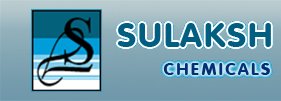Potassium Chloride produced at Sulaksh Chemicals is appreciated by the clients for high quality standards just beacause of we produce it using quality chemicals as raw material that. Potassium chloride (KCL) is a metal halide salt composed of potassium and chloride.
Potassium Chloride(KCL): Introduction
Solutions of Potassium Chloride(KCl) are common standards, for example for calibration of the electrical conductivity of (ionic) solutions, since KCl solutions are stable, allowing for reproducible measurements. In aqueous solution, it is essentially fully ionized into solvated K+ and Cl- ions.
Potassium Chloride: Industrial Applications
The Potassium Chloride Solution product is available in a broad range of formulations that have unique performance characteristics :
- Crops
Potassium application to different crop species is shown in Table 1.5 (Harris, 1998). The largest use is on cereals which get about 50% of the total used, followed by oilseeds (16%). After cereals and oilseeds, the usage is relatively evenly split between vegetables, sugar crops, root and tubers and fiber crops.
- Compound fertilizers
Standard and fine grades of KCl can be used as a K source for NK, PK and NPK fertilizers in the form of granulated products. Two major processes are used to produce granular products: the agglomeration type process and the accretion type. In most of the granular NPK products, the agglomeration process is used. The process is fed mainly with dry, small particle sized solids (such as fine grade KCl) which are assembled into agglomerates by mechanical force and cementing agents (UNIDO-IFDC, 1998).
- Fluid fertilizers
"Suspension fertilizers" are fluid fertilizers that contain nutrients in solution and suspended as fine particles (Wolf et al. , 1985). The particles remain suspended, because clay is added to the suspention to increase its viscosity (Potts, 1984).
- Deicer
Potassium chloride is used as a deicer for clearing snow and ice from roads, drives, and the entries to buildings. Other chemicals used as ice melters are: rock salt (NaCl), calcium chloride, magnesium chloride, calcium magnesium acetate and urea. The best product in terms of limiting corrosion is the acetate, but it is effective only down to -6-7°C. Potassium chloride is effective down to -11°C, lower than the other Cl salts and urea, and is equally corrosive to metals, but does not chemically attack concrete. The main advantages of KCl over the other melting materials are: (1) it does not contain Na, and (2) the K has a fertilizing value for grass, trees and shrubs on the roadside.
- Water softeners
Potassium chloride is used to regenerate the ion exchange resins used to treat hard waters, working on the principle of ion exchange. A synthetic resin bed (zeolite) is charged with Na or K ions by regeneration with NaCl or KCl.Calcium and Mg in the hard water exchange with the Na or K to give soft water, free from Ca and Mg. In addition, Fe and Mn, which are contaminants in drinking waters, can be removed by the same process.
- Other Applications
- Antifreezing Agents
- Metal Casting
- pH Regulation Agents
- Welding and Soldering Agents
|

